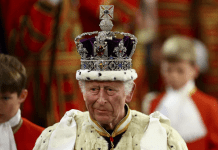In the past, being the wife of a Latin American leader meant having a powerful and visible role in your husband’s career. However, this is changing rapidly.
As many of the world’s most populous countries head to the polls this year, the role of women in politics is transforming in many places. In Latin America, all eyes will be on Mexico. The region’s second-largest democracy could get its first female president. The two leading candidates are women, with Claudia Sheinbaum currently leading the race. But the role of the first lady is also changing across the region—Mexico might even get its first “first man.”
A Changing Role
The role of the first lady has evolved since the days of Eva Perón, one of the world’s most famous first ladies. She was the wife of the Argentine president about 75 years ago and became one of the most influential political voices in Argentine history. In recent years, women have been pushing back against this role for several reasons. Some believe it is unfair for someone to gain such a powerful, unelected position. Others do not want to give up their own successful careers for their husband’s sake.
Beatriz Gutiérrez Müller’s View
One of the most prominent figures questioning the first lady’s role is Beatriz Gutiérrez Müller, the wife of Mexico’s current president. She has called the role elitist. “We are all women; we all do something important,” she said, emphasizing that no woman or man is secondary.
Irina Karamanos’ Experience
Beatriz Gutiérrez Müller advised Chile’s first lady, Irina Karamanos, after her then-boyfriend Gabriel Boric became Chile’s youngest president in 2022 at the age of 35. Karamanos, a political leader and feminist, struggled with taking on the first lady role, which she felt conflicted with her principles. “When the campaign ended, I started thinking about my role,” she said. The presidential system in both Latin America and the US means the partner plays a visible part in the country’s leadership. This tradition dates back to Dolley Madison, wife of the fourth US president, who helped define the role in the early 19th century.
Karamanos was given an office inside the presidential palace, her own team, and six foundations to oversee. She questioned why the president’s partner should have such power when they are not elected. In a country that emerged from military dictatorship only about 30 years ago, she felt it was very undemocratic. Despite her doubts, she decided to take on the role, believing that making feminist changes from within the system was important.
Stepping Down
Eventually, Karamanos transferred the foundations to people she felt were more qualified, closed her office, and her team resigned. She stopped working as the first lady in December 2022. She is no longer with the president, but she left a significant legacy in Chile—there will be no office for the first lady or first gentleman for any future presidential partner. Despite facing criticism for her actions, she has no regrets. She believes that democratic institutions need to be legitimate, and that means revising parts of the system that do not hold up to scrutiny.
Changing Views on the First Lady Role
Women like Karamanos are increasingly questioning the role of the first lady, diminishing its importance, says Dr. Esperanza Palma, a professor of sociology at the Autonomous Metropolitan University in Mexico City. “Political participation among women has changed a lot in most Latin American countries. There are still wives of presidents, but they are professional women or feminists with progressive values, so they do not play that traditional role anymore. The figure of the first lady is now a bit ridiculous.”
Janja Lula da Silva’s Approach
In Brazil, President Luiz Inácio Lula da Silva’s wife, Janja, has been trying to shape her role since he became president in January last year. Unlike Karamanos, she embraced the role. “Since the campaign, I’ve said I wanted to reshape the first lady role. The wife who hosts charity teas and visits philanthropic institutions, that’s not my profile,” she said. “Mine is the role of an articulator, who talks about public policy. We can be in different spaces and talk to different audiences when necessary.”
When Janja visited communities affected by floods in Rio Grande do Sul on her own, critics accused her of overstepping her bounds since she was not elected. She was shocked that in the 21st century, people still debated what a first lady could do. “[Lula] gives me total autonomy to do what I do. There is no hierarchy between me and my husband.”
Breaking Out of the Box
For Janja, the role is about choice. “It’s about breaking out of the box that first ladies are always forced into,” she says. “It’s about not having that box. She can do whatever she wants to.” In conservative Chile, Karamanos stepping down was significant. “It’s culturally important because you’re constantly giving an image of a very traditional, heteronormative role—or reproducing an image of the most conservative version of a woman.”
Feminist Movement
The last decade has seen a powerful feminist movement in Latin America, and both Janja and Karamanos have been prominent figures in it. They are changing the traditional role of the first lady in very different ways. This region is known for its machismo, but these women are challenging old norms and expectations.
The role of the first lady in Latin America is undergoing significant changes. Women like Beatriz Gutiérrez Müller, Irina Karamanos, and Janja Lula da Silva are redefining what it means to be the partner of a political leader. They are pushing back against traditional expectations, bringing feminist values to the forefront, and reshaping the role to better reflect modern values and their own principles. As a result, the traditional role of the first lady is becoming less relevant, and women are finding new ways to contribute to society and politics on their own terms.























